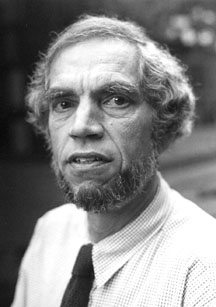The last thing I wanted to be writing on International Translation Day was the obituary of a friend. When I included Mike Heim’s recent translation of Death in Venice first among the list of translations I posted earlier today, it was as a conscious tribute: I knew that he had just begun hospice care because of the brain cancer that had been struggling to make inroads into his prodigious brain for the past two years. Suddenly the battle had tipped in its favor. It is a tribute to Mike’s incredible life force that he had been able to hold it at bay for so long. But this afternoon his wife Priscilla sent word that he had passed away last night. And it is a profound loss, not only for those of us who knew and loved him, but for all the readers of the books he translated from a good dozen languages. He really made his mark all over this planet. It was Mike who got the call when the Czech and Slovak halves of Czechoslovakia were in the middle of their divorce; the Czech government wanted to know what words to use in English to name their new country – the one we now know as the Czech Republic.
A good dozen years ago I found myself traveling across Germany with a band of American translators including Mike, on a study tour sponsored by the Goethe Institut, and can report that Mike spent a certain amount of time every day without fail studying Chinese, surely his 13th or 14th language at that point. I think he had at least some proficiency in all, or nearly all, the languages of both Eastern and Western Europe. He translated from several. And was always the most stalwart supporter of younger translators coming up, whether or not they had passed through his classroom (I envy those who did). A couple of years after that translators’ outing, I got a call from New Directions asking if I wanted to translate Jenny Erpenbeck’s book The Story of the Old Child; Mike, they said, had recommended me. Which I knew could only mean that he himself had been offered the contract and had remembered that I loved the book – I’d been given a copy when we visited Erpenbeck’s German publisher in Frankfurt and had devoured it on the train to Munich, unable to stop talking about how much I liked it. Mike had decided to make me a gift of this book, perhaps sensing that Jenny and I would be a good fit (a hunch borne out by the fact that I will soon be translating my fourth book by her). For this act of generosity, I will be forever grateful to him.
There is so much more to say about Michael Henry Heim’s accomplishments, his good citizenship in the community of translators and international literature (he was always striving to foster greater recognition for translators and better understanding of what we do), his kindness, and the hugeness of the gap he will leave behind. I will write more about him soon, and I am sure many others will as well. For now: Thank you, Mike, for all your gifts and acts of kindness. You were much loved, and are already missed.



Wow, this is very sad news. He was indeed a force of nature whom I had the privilege of knowing when I was teaching Russian in LA. Thanks for writing about him — he will be missed.
Love the story about Mike and his Chinese studies. Thank you for this. What a great mind and a great friend of literature. I will miss him!
This is indeed a huge loss for so many, and your tribute is beautiful. Michael was an extraordinary mentor and teacher, and his generosity and kindness have clearly touched so many lives. One happy note in all this is that his exquisite translations make a marvelous legacy, but I already miss him terribly.
Thank you for your tribute to this phenomenal scholar and translator. I first met Michael Heim as a freshman at UCLA, when another professor of Russian showed him my (fairly amateur-ish) attempt at translating the first two chapters of The Master and Margarita. Michael kindly invited me to come to office hours and spent over an hour poring over the typewritten pages with me and discussing the technical and semantic aspects of the translation as though speaking with a colleague, not a brand-new undergrad. I was fortunate to collaborate on a translation with him several years later, and to have him on my dissertation committee a few years after that, and I can say with absolute certainty that I have never, before or since, met anyone more committed to the integrity of the written or spoken word, or to building bridges and connections across languages and people. I cannot begin to express how much he taught me about translation, about literature, about the nuance implicit in choosing this word over that, even the (very compelling) reasons for his loathing of the word “lifestyle.” He was unstintingly generous with his time, meticulous in his speech and writing, and just, quite simply, a person suffused with thorough-going decency, curiosity, and kindness that I have never come close to encountering in anyone else. He will be deeply and sorely missed.